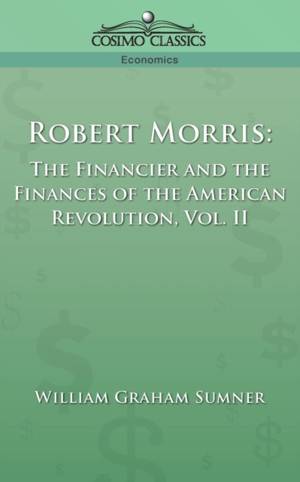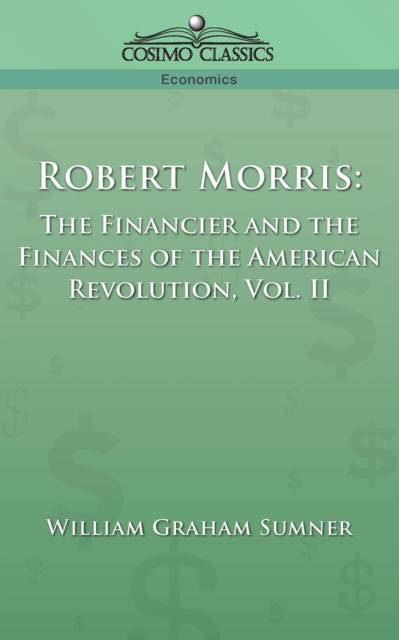
Bedankt voor het vertrouwen het afgelopen jaar! Om jou te bedanken bieden we GRATIS verzending (in België) aan op alles gedurende de hele maand januari.
- Afhalen na 1 uur in een winkel met voorraad
- In januari gratis thuislevering in België
- Ruim aanbod met 7 miljoen producten
Bedankt voor het vertrouwen het afgelopen jaar! Om jou te bedanken bieden we GRATIS verzending (in België) aan op alles gedurende de hele maand januari.
- Afhalen na 1 uur in een winkel met voorraad
- In januari gratis thuislevering in België
- Ruim aanbod met 7 miljoen producten
Zoeken
Robert Morris
The Financier and the Finances of the American Revolution, Vol. 2
William Graham Sumner
Paperback | Engels
€ 33,95
+ 67 punten
Uitvoering
Omschrijving
Robert Morris' tombstone states that he was "The Financier"; officially, however, he was Superintendent of Finance. Whatever his title, Robert Morris played an integral role in financing the American Revolution, and Yale Professor William G. Sumner examines Morris' life and actions to enhance our understanding of the finances of the young nation.In Volume II of a two-volume work, Sumner begins with the events of 1781, when Morris anticipated receiving loans from Spain. From there, Sumner looks at Morris' attempts to secure loans from other nations, his unpopularity and resignation, and the organization of the treasury. Sumner also covers the Bank War of 1785-1786, the Commercial Convention and the Constitutional Convention, Morris' career in the U.S. Senate, and his social standing and business dealings. What should be noted is that while Morris helped to finance the Revolution, he spent three years in prison for personal debts. WILLIAM GRAHAM SUMNER was a professor of political and social science at Yale University and became known as a Social Darwinist and advocate of the laissez faire principle in economics. Besides writing a number of books on sociology, history, and economics, he was also influential in the movement to modernize the American university system.
Specificaties
Betrokkenen
- Auteur(s):
- Uitgeverij:
Inhoud
- Aantal bladzijden:
- 340
- Taal:
- Engels
Eigenschappen
- Productcode (EAN):
- 9781596050839
- Verschijningsdatum:
- 1/01/2013
- Uitvoering:
- Paperback
- Formaat:
- Trade paperback (VS)
- Afmetingen:
- 127 mm x 203 mm
- Gewicht:
- 367 g

Alleen bij Standaard Boekhandel
+ 67 punten op je klantenkaart van Standaard Boekhandel
Beoordelingen
We publiceren alleen reviews die voldoen aan de voorwaarden voor reviews. Bekijk onze voorwaarden voor reviews.









